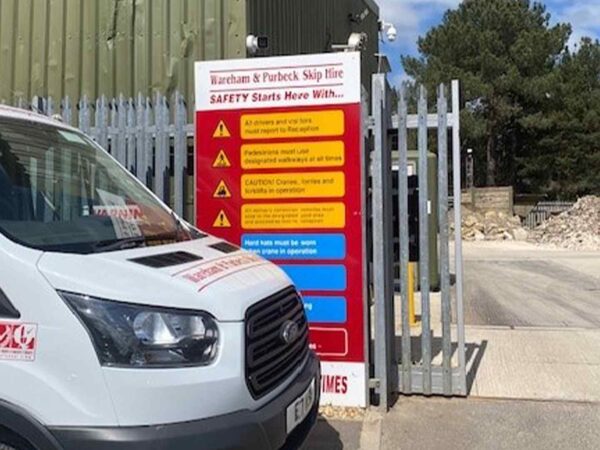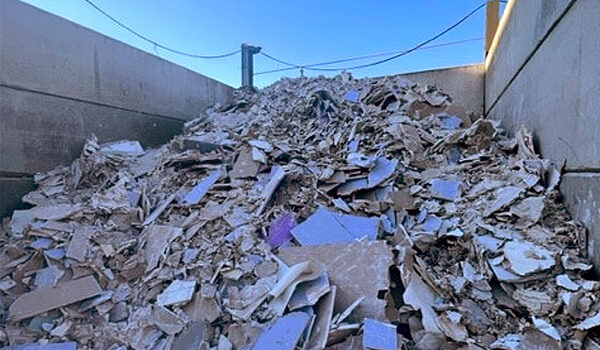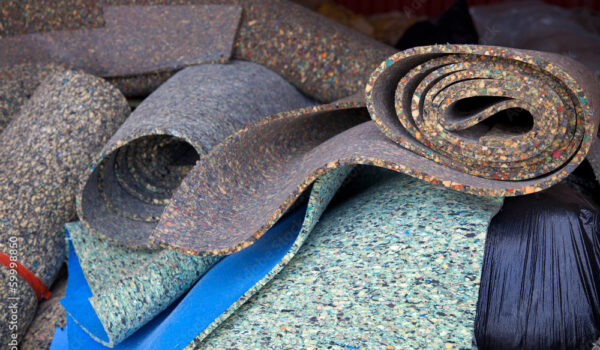
Your Responsibilities
As a hirer, you have a number of responsibilities when it comes to hiring a skip.
- You are solely responsible for any damage caused while entering or leaving premises
- Please do not overfill or start fires in skips
- Skips must not be moved once delivered
- All loads should be level with sides of skip – you are liable for costs should overloading damage a skip.
- Compliance with the current WEEE directives.
Non-Permitted Waste
Non-permitted waste includes:
- Aerosols
- Any liquid waste
- Asbestos
- Batteries
- Computer monitors
- Cookers and ovens
- Dishwashers
- Digger Tracks
- Fluorescent tubes
- Fridges and freezers
- Gas cylinders
- Gypsum (plasterboard) and other high sulphate materials
- Hoovers
- Irons
- Kettles
- Mattresses
- Microwaves
- Mobile phones
- Oils/filters
- Paint tins (empty or full)
- Printers
- Radios/stereos
- Silicone/mastic tubes
- Television
- Toasters
- Treated wood (i.e. railway sleepers and telegraph poles)
- Tumble dryers
- Tyres
- Washing machines
- Any other electrical items not listed
- No waste household / commercial seating (including sofas and chairs that include a textile, upholstered or foam component)’ are allowed to be placed into the container. See here for information about ‘Persistent Organic Pollutants (POPs)’. You will be charged for the segregation, storage and incineration of these item due to the potential presence of POPs.
Please note that as the hirer you are liable to further charges should any of the above be found in the skip.

Plasterboard Solutions
From 1st April 2009 amendments to Landfill Regulations 2002 mean that Gypsum (plasterboard and other sulphate bearing products) must not be mixed or landfilled with biodegradable waste. We can supply plasterboard only skips to meet your requirements.

Additional Costs for Carpet
Please note that as the hirer you are liable to further charges should more than 10% of the skip contain carpet. This is charged at £100.00 additional costs per skip
Persistent Organic Pollutants (POPs)
Important Information regrading Persistent Organic Pollutants (POPs) the following changes apply as of January 2023
Managing wastes containing POPs
POPS are persistent organic pollutants that are highly controlled under legislation in terms of their use (now banned) and also any materials / wastes that contain such POPs.
Any wastes containing POPs cannot be recycled or reused; such wastes cannot be landfilled with all such wastes effectively requiring incineration.
The POPs that have been found in household seating is a brominated flame retardant.
Waste household seating and POPs
Household domestic seating includes any item of seating of a household type (from households or businesses) that is waste (for example sofas, sofa beds, armchairs, kitchen and dining room chairs, stools and foot stools, office chairs bean bags plus floor or sofa cushions.
Any such item that has an upholstered aspect – including leather, synthetic leather, other fabric or foam – may contain these POPs.
The EA advice is that any such item that is upholstered should be assumed to contain these POPs.
 Request a booking
Request a booking
 01202 620077
01202 620077